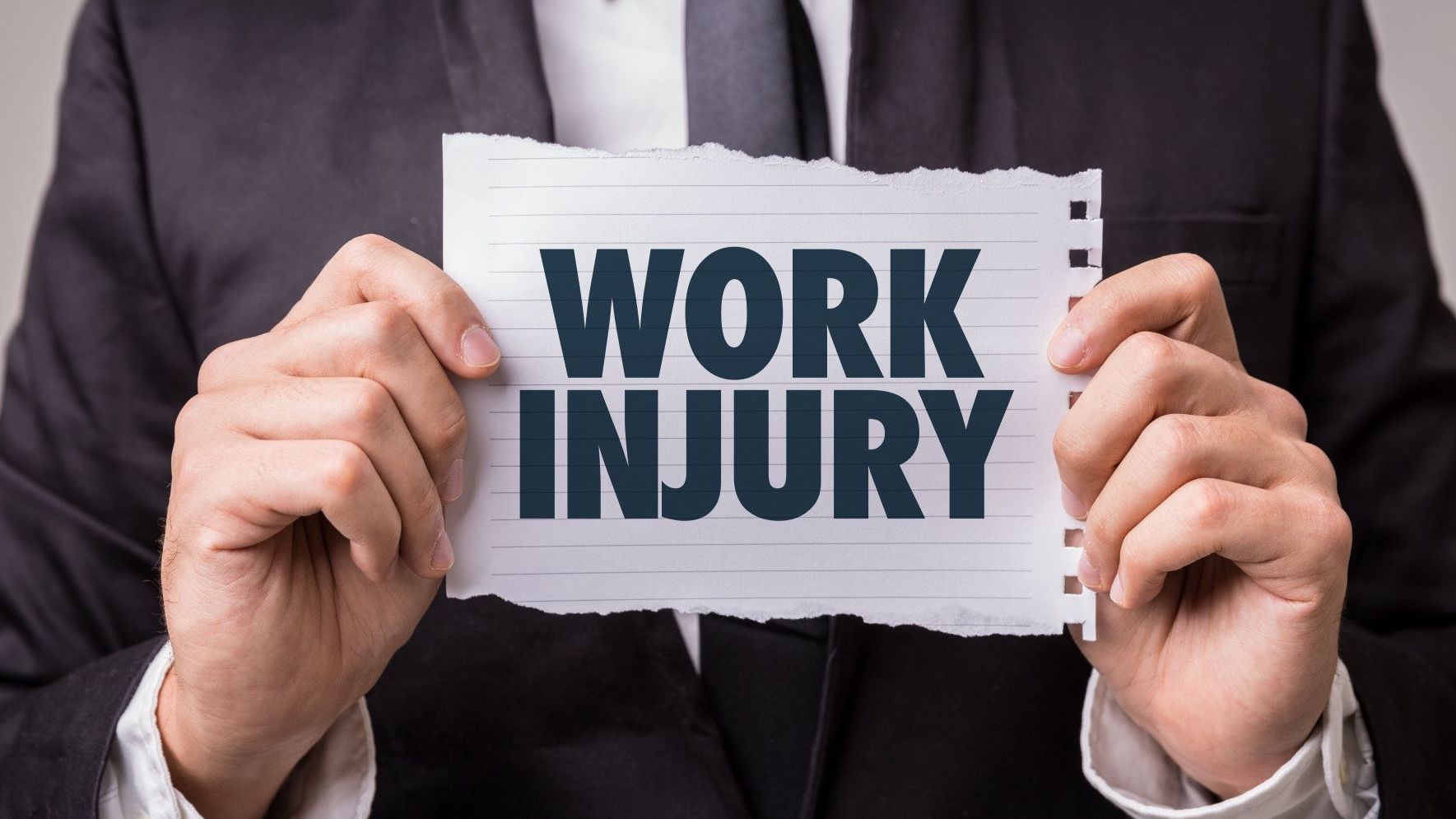Blog Layout
Workers' Compensation and Company Doctors: Can You Trust Them?
Hibu Websites • March 31, 2021
Workers' Compensation and Company Doctors: Can You Trust Them?
11 Jan, 2017
If you have sustained an injury due to an incident or chronic exposure at work, you have to act and file a claim. Without the financial support of workers' compensation, you could face a decline in quality of life and...
If you have sustained an injury due to an incident or chronic exposure at work, you have to act and file a claim. Without the financial support of workers' compensation, you could face a decline in quality of life and quality and amount of treatment. However, you must follow correct workers' compensation procedures, and that often includes getting a medical exam from a specific doctor.
The Company Doctor
Something that surprises people when they want to file a workers' compensation claim is that they are often required to see a doctor designated by the insurance company or the employer, even if they have already seen their own doctor. (Note that if you are a federal employee, rather than state or private, you may have the right to use your own doctor; however, you must consult with that lawyer familiar with the Federal Employees' Compensation Act. There have also been a few bills introduced into the Iowa legislature that would allow employees to predesignate a doctor for workers' compensation exams, but these bills have not really gone anywhere yet.)
On the face of it, this sounds relatively mundane, almost like getting a second opinion. But the danger in this is that the insurance/employer-designated doctor is not necessarily going to be on your side. The doctor has been hired to see if the injury really is work-related -- and to see if there's a chance that it's not.
This does not mean that the doctor is an outright enemy, but you must be cautious about how you speak to the doctor. Talk about only the incidents that led to the injury. Don't wander off the conversational track and muse about your yard work at home and how hard it used to be, or all those concerts you attended over the summer. If you're trying to get workers' compensation for a hearing loss that you think was the result of chronic noise exposure at work, and then you talk about going to loud rock concerts, the doctor may brush off your complaints as the result of the concerts, not work.
Improving Your Case
In addition to sticking to the subject, be prompt with your reporting. In Iowa, you have only 90 days to report a work-related injury that's kept you out of work for more than three days. Report any later than that, and you risk having your entire claim denied. As for injuries that kept you out of work for less than three days, speak with a lawyer as soon as possible.
Keep records; you do have the right in Iowa to have a copy of your medical records. If you've been denied copies, think the company doctor is ignoring your complaints, or have other questions about workers' compensation, consider consulting an attorney skilled in compensation law. Having an ally with sound legal knowledge could make all the difference in winning your claim.

By 7016408197
•
March 23, 2025
When it comes to car insurance, many people think primarily about liability coverage—insurance that covers others if you’re at fault in an accident. However, underinsured motorist (UIM) coverage is equally important, as it protects you if an accident leaves you injured by a driver with inadequate coverage. What is Underinsured Motorist Coverag e? Underinsured motorist coverage is designed to safeguard you and your family from the financial burden of an accident caused by a driver who doesn’t have sufficient insurance to cover your damages. Here’s how it works: Imagine you’re at a local Des Moines sports event. After parking, you’re walking across the lot when a vehicle accidentally hits you, causing injuries. If that driver has no insurance or only minimal coverage, their policy may fall far short of what you need to cover medical bills, lost income, and other expenses. Underinsured motorist coverage on your own policy steps in to fill the gap, helping you recover the full amount necessary to cover your damages. This protection applies whether you’re in your vehicle or, as in this example, outside of it—what matters is that your injuries resulted from the actions of an underinsured driver. How Much Underinsured Motorist Coverage Should You Carry? The amount of underinsured motorist coverage you carry is a personal choice, but it’s worth considering a higher limit. In Iowa, insurance companies are allowed to sell this coverage with a minimum limit of $20,000 per person. However, relying on minimum coverage could leave you financially vulnerable in a serious accident. Insurance agents often recommend high liability limits to protect others in case you cause an accident but may suggest lower UIM coverage to keep your costs down. Yet, underinsured coverage is specifically for your protection and the well-being of your loved ones. It doesn’t make much sense to carry more coverage for others’ injuries than for your own, yet this is common due to the way policies are structured. Reviewing Your Policy: Are You Adequately Protected? Take a moment to review your policy or discuss it with your agent to ensure you’re not underinsured. Here are a few questions to consider: • Does my underinsured coverage match my liability coverage? If not, you might want to ask why, especially if your liability limits are significantly higher. • Would my current underinsured coverage be enough in a serious accident? Consider your financial situation, family needs, and potential medical costs to make sure your coverage is sufficient. If you find that your uninsured/underinsured coverage is significantly lower than your liability coverage, it might be time to ask questions and re-evaluate your options. Prioritizing adequate underinsured motorist coverage is an investment in peace of mind, ensuring that you’re better protected, no matter who is at fault in an accident.

By 7016408197
•
February 14, 2025
Injured in a crash caused by an uninsured driver in Des Moines, IA? You may still recover damages with uninsured motorist (UM) coverage. LLDDC Law’s auto injury attorneys can help you navigate your claim and secure the compensation you deserve. Call for a free consultation—no fee unless we win!

By 7016408197
•
January 24, 2025
Workplace fatalities are tragic and raise many questions for surviving family members about eligibility and the types of benefits available. If the death arose out of and occurred during the course of employment, there are three primary categories of benefits under workers' compensation laws. 1. Weekly Compensation for Dependents Surviving spouses and minor children are typically eligible for weekly compensation. Key points include: • For the spouse: Payments can continue for life unless the spouse remarries. Upon remarriage, the spouse may receive two years of benefits as a lump sum, ending further payments. • For minor children: Payments end when the child turns 18 unless the child is physically or mentally incapacitated or enrolled in full-time accredited education. • Lump-sum payments: While benefits can be taken as a lump sum, these are often heavily discounted and may not be advisable. 2. Medical Expenses If the worker survives for a period before passing, the employer is responsible for: • All reasonable medical expenses incurred due to the injury. • Healing period payments owed prior to the worker's death. 3. Burial Expenses Workers' compensation provides come coverage for burial costs. This benefit helps ease the financial burden during an already difficult time. Additional Consideration: Third-Party Claims If the death was caused by the negligence of a person or company other than the employer, surviving family members may also pursue a personal injury claim in addition to workers' compensation benefits. Final Thoughts Navigating workers' compensation after a workplace death can be overwhelming. Understanding the benefits available—from weekly compensation to burial expenses—can help surviving families secure the support they need. Consulting with an experienced workers' compensation attorney at LLDDC Law can ensure you receive the full benefits to which you are entitled.

By 7016408197
•
December 1, 2024
If you or a loved one has experienced a catastrophic injury, navigating insurance claims and mounting medical bills can feel overwhelming. At Lawyer Lawyer Dutton Drake & Conklin, our experienced injury attorneys are here to provide the guidance and advocacy you need. We fight for injured Iowans—not the insurance companies. Contact us today for a free consultation and let us help you focus on recovery.

By 7016408197
•
November 16, 2024
In the aftermath of a car accident, navigating the world of insurance can be overwhelming, especially when the negligent driver has inadequate coverage. This often leads clients to wonder: are there other avenues for compensation? The answer lies in the concept of vicarious liability, a legal principle that can open up additional insurance resources. Call LLDDC Law at 515-224-4400, Iowa's Injury Lawyers.
This is a placeholder for the Yext Knolwedge Tags. This message will not appear on the live site, but only within the editor. The Yext Knowledge Tags are successfully installed and will be added to the website.
VISIT US
,
This is a placeholder for the Yext Knolwedge Tags. This message will not appear on the live site, but only within the editor. The Yext Knowledge Tags are successfully installed and will be added to the website.
Hi. Get in touch with us today!
HOURS
This is a placeholder for the Yext Knolwedge Tags. This message will not appear on the live site, but only within the editor. The Yext Knowledge Tags are successfully installed and will be added to the website.
CONTACT US
This is a placeholder for the Yext Knolwedge Tags. This message will not appear on the live site, but only within the editor. The Yext Knowledge Tags are successfully installed and will be added to the website.
Privacy Policy
| Do Not Share My Information
| Conditions of Use
| Notice and Take Down Policy
| Website Accessibility Policy
© 2025
The content on this website is owned by us and our licensors. Do not copy any content (including images) without our consent.





Share On: